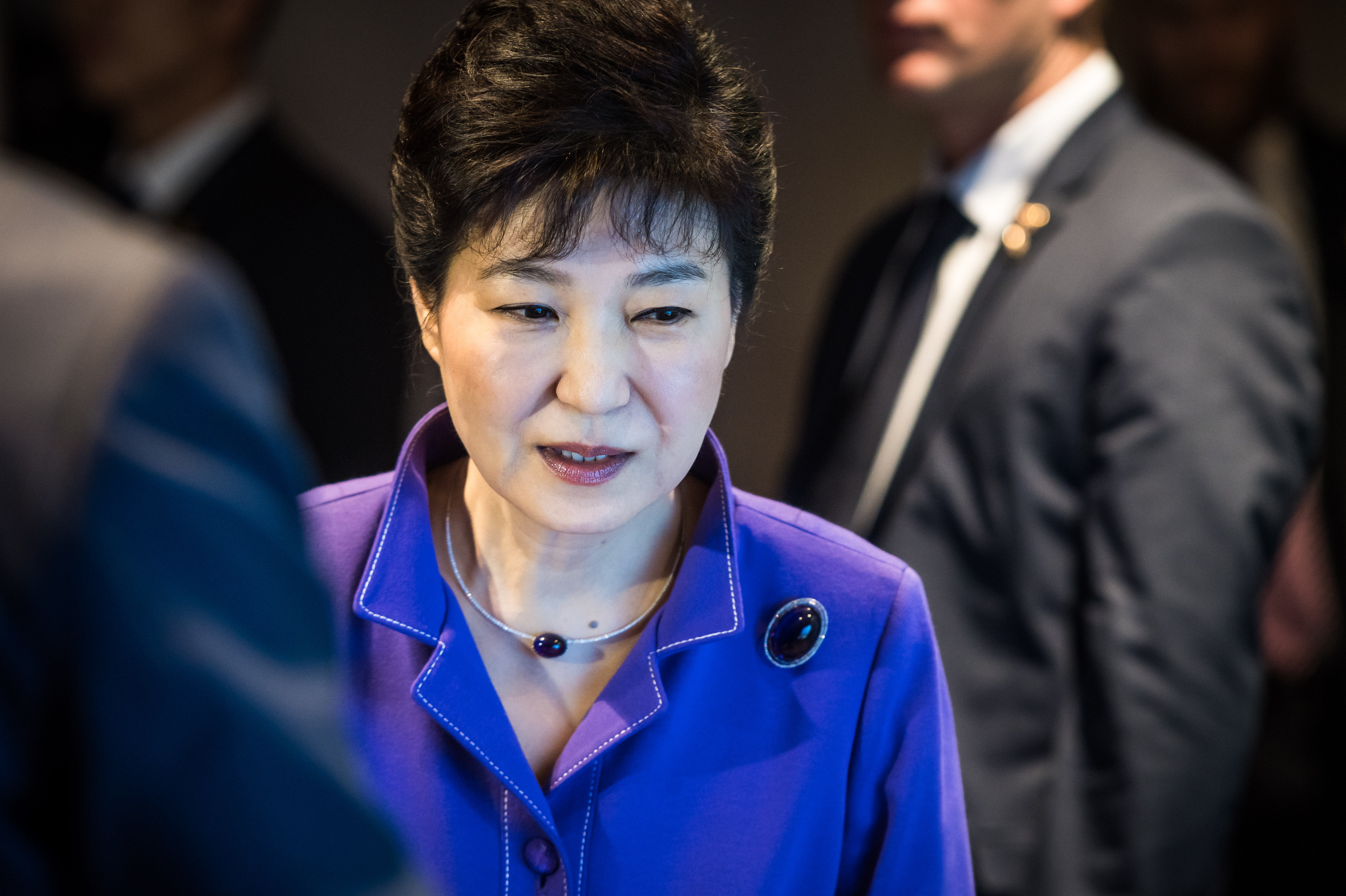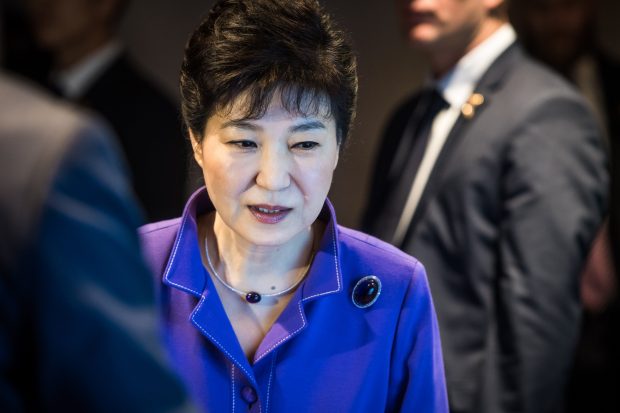
History of the scandal: How the impeachment drama has unfolded
 Eom Da-sol, Park Si-soo / The Korea Times
Eom Da-sol, Park Si-soo / The Korea Times
The Constitutional Court’s landmark ruling has stripped Park Geun-hye of her presidency as well as legal shields that have blocked her prosecution and other legal action.
The decision makes Park the nation’s first democratically elected leader to be ousted in a widespread corruption and influence-peddling scandal that has rocked the country for months.
Park saw her presidency suspended by the National Assembly in December. And after 92 days, she was permanently removed from the seat, marking the end of her tumultuous 1,475 days in office.
The following are the major events showing how she rose and fell — and crashed to a president-turned-criminal suspect.
Mar. 10: The Constitutional Court upholds President Park Geun-hye’s impeachment.
Mar. 6: Independent counsel Park Young-soo accuses the President and her confidant Choi Soon-sil of colluding in a corruption scandal in the announcement of 90-day investigation outcome.
Feb. 28: Justices of the Constitutional Court start their final discussion period of two weeks.
Feb. 26: President Park, who was not present at any of the previous hearings, says she will not attend the last hearing on Feb. 27.
Jan. 31: After nine hearings, Chief Justice Park Han-chul retires and Justice Lee Jung-mi succeeds him as acting court president.
Jan. 3: The first pleading session of the impeachment trial is held, but President Park does not show up.
Dec. 16: President Park submits a denial letter to the court, saying: “There is no evident reason for me to be impeached.”
Dec. 9: The National Assembly passes Park’s impeachment bill and submits it to the Constitutional Court for consideration. Prime Minister Hwang Kyo-ahn becomes acting president until the court’s decision.
Dec. 7: The National Assembly hearing questions key witnesses and suspects related to the scandal, including Choi’s two aides — Cha Eun-taek, and Ko Young-tae — and Choi’s niece, Jang Si-ho. But Choi and Choi’s daughter do not attend.
Dec. 6: Lawmakers question the leaders of the country’s biggest businesses in a rare televised hearing about their alleged behind-the-scenes deals with Choi, and to learn whether the presidential office forced them to donate to Choi’s two foundations. Attendees include the chiefs of Samsung, Hyundai Motor, Lotte, and LG.
Dec. 3: More than 2 million people protest across the nation for the sixth straight weekend of demonstrations. It is the biggest protest in the country’s history. Also on the same day, opposition lawmakers vow to vote for Park’s impeachment on Dec. 9.
Nov. 29: Under increasing pressure to resign, Park makes a third public apology, with a conditional offer to resign if the parliament arranges a stable power transfer. Opposition lawmakers criticize the offer as a stalling tactic to win back dissenters from her ruling party who support impeachment.
Nov. 20: Prosecutors cite Park as an “accomplice” to Choi, saying they believe Park was involved in bullying businesses into donating billions of won to Choi’s two foundations. It is the first time the prosecution has named an incumbent President as a “criminal suspect”.
Nov. 12: Hundreds of thousands of people protest in a third anti-president rally in central Seoul calling for Park’s removal.
Nov. 11: Police arrest Choi’s close aide Cha Eun-taek — a well-known company director — on charges of using his ties with Choi and other senior government officials to win lucrative projects.
Nov. 6: Two of Park’s aides — An Chong-bum and Jeong Ho-seong, a former secretary for presidential affairs, — are arrested on charges including extortion, power abuse, and leaking classified information to Choi.
Nov. 4: Park makes a second public apology, but denies any wrongdoing in the scandal. Park says she will accept prosecutors’ investigation into her action. Park’s support rate drops to record-low 5 percent.
Oct. 30: Choi returns to Korea from Europe and is arrested without warrant at Incheon International Airport.
Oct. 29: The first massive anti-president rally is held in central Seoul, calling for Park’s resignation.
Oct. 27: The special investigation probe team on the scandal is launched.
Oct. 25: Park, who had initially denied the allegations surrounding Choi, makes a public apology and admits her ties with Choi. Park says she had merely sought advice from her longtime friend about speeches and public relations issues.
Oct. 24: Cable TV channel JTBC reports that advance drafts of the President’s speeches have been found on Choi’s tablet computer. The report adds that Choi also had access to classified material about national security and foreign affairs. This decisive incident proves Choi’s link to Park, increasing suspicion that Choi held undue influence on Park and meddled in state affairs.
Oct. 20: Choi’s close aide Ko Young-tae reportedly exposes Choi and Park’s close relationship, saying, “Choi’s favorite hobby is changing Park’s speech drafts.”
Oct. 19: The president of Ewha Womans University resigns, alleging that the university gave special treatment to Choi’s daughter, Chung Yoo-ra, in admission and grading.
Sept. 20: Newspaper Hankyoreh reports that Park’s longtime friend Choi-Soon-sil established and ran Mir and another non-profit organization called K-Sports that also received donation from the businesses. The report raises suspicions about whether Choi used her ties with Park to extort donations from the businesses to establish the two foundations she controlled. The presidential office immediately denies Choi’s alleged involvement in the coercive fundraising.
July 26: Cable news channel TV Chosun reports that the presidential office forced conglomerates to donate almost 80 billion won ($71.8 million) to Mir Foundation, a newly founded non-profit organization aimed at promoting Korean culture to the world. The report says An Chong-bum, Park’s former senior secretary for policy coordination, used his power in the fundraising. Local media raises suspicion about why such a dubious foundation was established and who ran the organization.


